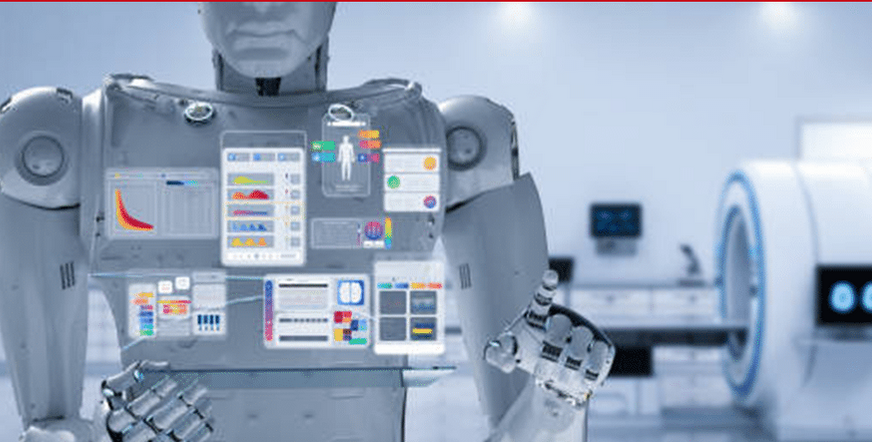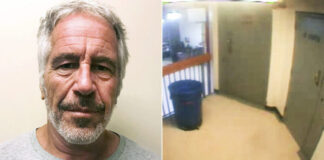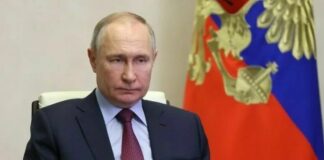Dr. Vernon Coleman believes that most modern GPs have lost the joy of medicine by not doing home visits, night visits, and face-to-face consultations, and instead, focus on earning money.
He thinks that GPs have become “robotic, prescription-signing gatekeepers” and that their work could be done better by computers and robots, making them redundant.
He predicts that within five years, there won’t be any GPs, as they will be replaced by robots and computers, having priced themselves out of the market and lost the public’s confidence.
Sadly, most GPs don’t care about their patients. They are not in medicine to care for people. The word “vocation” is of historic interest. Too many of today’s doctors are in it just for the money.
What most of them don’t realise is that by refusing to do home visits, night visits and even to do face-to-face consultations, they have denied themselves the main joy of medicine. Thousands never see live patients at all. They do all their consultations on the telephone or over the internet. They never deal with emergencies. They no longer save lives. They never take blood samples, syringe ears or remove stitches. And so, they miss the very essence of medicine. And just as pharmacists long ago lost their professional skills and became nothing more than wrappers of pill bottles and packets, so GPs have lost their professional skills.
When I practised as a GP, I knew I was fortunate enough to save a number of lives. I was, for example, called to see a young man who had suffered a severe allergic reaction as a result of eating fish (to which he knew he was allergic). I injected adrenaline and he lived. If I hadn’t been there, he’d have died. On numerous occasions I saved the lives of patients in status asthmaticus. There are few professional satisfactions to match that of driving home in the middle of the night knowing that you’ve just saved someone’s life. I used to pride myself on getting to my patients quickly. (On one occasion, I was fined £5 when a local copper saw me speeding to a patient and took my car number.) I don’t believe I was any different. All GPs of my generation were the same.
And at the other end of the spectrum, there is pleasure to be taken from curing a patient’s deafness by removing wax from their ears; by giving an injection or taking a blood sample without the patient feeling anything (and definitely without there being a bruise afterwards).
The word “vocation” has been redefined to mean doing as little work as possible for as much money as can possibly be gouged out of the NHS and the taxpayers. How things have changed.
When I started in practice, I found the old accounts book in my predecessor’s office (which I had “inherited” in its totality when I’d taken over his patients). He had practised before the NHS was born and all his patients had been private ones. He earned his living by working hard (he was a sole practitioner who was available to his patients 24 hours a day for 365 days a year) and he applied the principle of Robin Hood to the way he worked. He charged his patients 1 guinea, ten shillings and sixpence or half a crown according to their financial standing. Those were his standard fees. If you were a one-guinea patient and you needed to see him six times, then your bill was six guineas. If you were a two shilling and sixpence patient, then six consultations would cost a total of 15 shillings. A good many of the two shillings and sixpence fees had a line through them because they had been cancelled without ever being paid. He was on call for his patients every hour of every day. And although he could be brusque, his patients loved him.
Today’s GPs never see patients who are seriously ill and they never cure anyone. And that’s why they’ve lost the joy of medicine. There is no real point to what they do. Modern GPs have become robotic, prescription-signing gatekeepers to the hospital (though even that has been taken over by Accident and Emergency Departments). The work modern GPs do could be done much better by computers, which are not just more efficient and cheaper but also more humane. And robots can take blood samples and give injections too – thereby making all those other members of staff redundant.
Any medical student or young doctor considering a career as a GP should think again and look for something else to do.
The traditional GP has gone forever and patients will be much better off with a medical robot, which will be available 24 hours a day and 365 days a year, practising in a telephone box-sized booth outside the local supermarket.
I’m not sure whether or not GPs are actually on strike at the moment (they do so little work that it is difficult for anyone to know) but they’re constantly grumbling about their workload. For the record, they work an average of 23 hours a week and earn the best part of £150,000 a year for this – plus another £50,000 a year to tell a staff member to vaccinate every patient who is innocent enough to agree to be vaccinated.
Many modern GPs now refuse to see patients at all – insisting on doing all their consultations on the telephone or via the internet, even though this sloppy type of medicine is disastrous and results in misdiagnoses and inappropriate treatments.
When I was a GP, the routine was simple. I did a surgery in the mornings and saw about 20 to 30 patients. After the surgery, I made phone calls, read the mail, dictated letters, signed letters, signed prescriptions and met the district nurse if she was around. We took blood samples, stitched wounds, removed stitches, syringed ears and took swabs. We did all these things ourselves and thought of them as an essential part of a GP’s job. (Modern GPs often send patients to the hospital to have these things done – probably because it is difficult to take a blood sample when you’re working from home – misdiagnosing patients by telephone.)
When I’d finished in the surgery, I visited patients who wanted to be seen at home. After lunch, I visited a few more patients and read the medical journals to keep up. At 4 pm, I began the evening surgery which usually finished at about 6.30 pm or 7.00 pm. Every GP I knew worked in much the same way.
There were five partners in the practice where I worked, so I was on call one night a week and one weekend in five. We took it turns to be on call on bank holidays such as Christmas. There were far fewer doctors per 100,000 patients then than there are now and we had far more patients to look after. We had around 2,500 patients each, whereas modern GPs often complain if their lists are over 1,000 patients per doctor.
When I was on call, the phones were switched through to my home telephone number after I finished my evening surgery. And the following morning, when the receptionists arrived at the surgery, the phones were switched back. Some nights there would only be one or two calls but on other nights I would hardly get to bed at all. Naturally, I would work a full day after being on call for the night. So, once a week, we’d be on duty for a continuous 36 hours.
Weekends did sometimes get a little tiring but I honestly don’t remember any GP complaining. I’d work the Friday as usual and then at the end of the evening surgery, the phones would be switched through to my home. I’d then deal with all the phone calls and queries and emergencies until Monday morning when the phones would be switched through to the surgery. I’d then do the Monday surgeries and calls as usual. It was vital to fill the car with petrol on a Friday before a weekend on call because running out of petrol at 3.30 am on Sunday wasn’t a good idea. There weren’t any mobile phones then, so sometimes I’d drive a few miles, see a patient, drive home and then have a message to go out to another patient a few doors away from the first one.
So, if it was a busy weekend, I’d have worked constantly from early Friday morning until the end of the evening surgery on Monday when I could put my feet up or go to sleep. So, a weekend on duty would mean working for 82 hours continuously.
Single-handed doctors (and there were still a few when I was in practice) would be available for 168 hours a week – only taking holidays when they could find a locum. There were doctors who never had a holiday because they would never trust a locum to look after their patients properly.
Today, most GPs never visit patients at home and are never on call at nights or at weekends. The result is that neither the ambulance service nor hospitals can cope. And patient care is frequently worse than appalling.
I’m not saying doctors today should work as hard as we did. And I’m certainly not complaining about how hard doctors used to work. I’m just saying that doctors should stop whingeing and complaining of being overworked and underpaid when they are patently neither overworked nor underpaid.
GPs and their trade union have been allowed (or more accurately “encouraged”) to destroy general practice, to kill people and to aid the globalists’ depopulation plan.
If you really want to know more about why medical care has deteriorated (and want to see the evidence proving why and how general practice is being deliberately destroyed) you can find out more in my book `The End of Medicine’. ( CLICK HERE if you’d like to purchase a copy.)
It breaks my heart to see what has happened to medicine. It really does. And I really do think that GPs would be happier, and enjoy their work more, if they took back some of the traditional responsibility and started, again, to care for their patients every hour of every day.
Sadly, I don’t think that will happen.
And within five years, there will be no place for GPs in medical care. They have priced themselves out of their market and they lost the confidence of the public. GPs will be replaced by robots and by computers. Greedy beyond comprehension, GPs have betrayed their calling and by giving toxic vaccines to trusting patients, they have sold their souls for the traditional mess of potage.
From expose-news.com
Disclaimer: We at Prepare for Change (PFC) bring you information that is not offered by the mainstream news, and therefore may seem controversial. The opinions, views, statements, and/or information we present are not necessarily promoted, endorsed, espoused, or agreed to by Prepare for Change, its leadership Council, members, those who work with PFC, or those who read its content. However, they are hopefully provocative. Please use discernment! Use logical thinking, your own intuition and your own connection with Source, Spirit and Natural Laws to help you determine what is true and what is not. By sharing information and seeding dialogue, it is our goal to raise consciousness and awareness of higher truths to free us from enslavement of the matrix in this material realm.
 EN
EN FR
FR


























